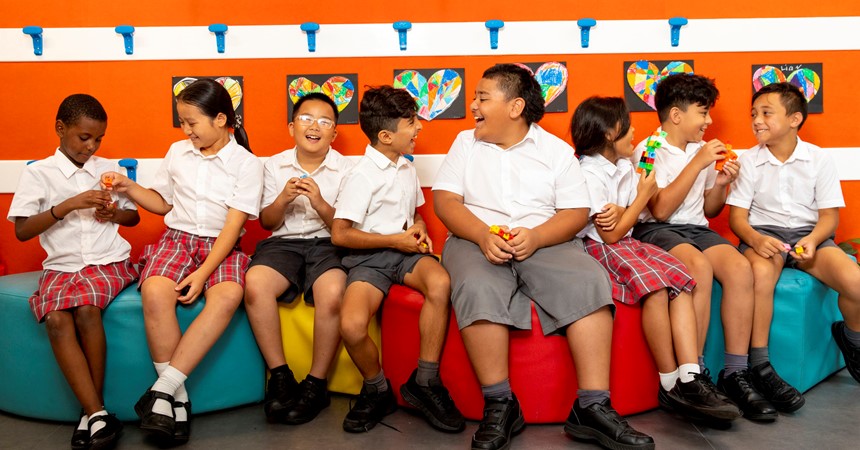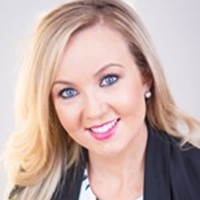That is according to two Newcastle teachers, Maree Adams and Bonnie Griffin, who have more than 60 combined years of experience in education, most of which has been spent supporting students who learn English as an additional language or dialect (EAL/D).
"It's an important differentiation that needs to be understood," Mrs Adams says.
Approximately 7 per cent of students attending Catholic schools across the Diocese of Maitland-Newcastle are from non-English speaking backgrounds. These students include, but are not limited to, offspring of migrants, refugees from war-torn countries, speakers of one or more First Nations Languages and those who speak Non-Standard Australian English as a first language.
Through its EAL/D teaching program, the Diocese aims to empower these children's learning by supporting their social English and academic English.
"Learning English as a second, third or even fourth language is not a deficit," Mrs Adams says. "It might be seen that way by some, as the students may not be able to access all aspects of the syllabus. However, they have perspectives, knowledge and experiences that many of us don't have.
"Really, I believe it’s a benefit. It makes our community richer."
The duo has the same expectations of all students, regardless of their background.
"All students should be aspiring to reach their goals,” Mrs Griffin says. “It may just be that we facilitate a different path to lead them there."
The teachers also caution against what they describe as “the soft racism of low expectations”.
"These students can bring with them a strong sense of social justice through perspectives our English-speaking students may otherwise never have the opportunity to experience,” Mrs Griffin says. “I have watched these children elevate the consciousness of an entire class.”
Both Mrs Adams and Mrs Griffin are stationed at St Columban's Primary School in Mayfield, where one-third of the students learn English as a secondary language.
"The school culture here is very much one of acceptance and recognition of difference as a strength, which I don't think has filtered into the broader community yet," Mrs Griffin says.
"We consider the diversity of our students to be a real blessing. We encourage the opportunity to spend time listening to everyone's stories. Some of them are just mind-blowing.
"To be able to walk in another person's shoes by hearing their story is enriching and can be life-changing, whether you are 7 or 77," Mrs Adams says.
Sharing stories and being authentic to their experience helps to inform everyone's learning, including their own.
"There is a misunderstanding that students from non-English speaking backgrounds should convert to only speaking English once they reach school age,” Mrs Griffin says. “However, what we find ourselves continuing to say to their parents is to 'please keep reading and speaking your language at home' as it actually supports their ability to learn English. Maintaining first language also maintains first culture which is essential to developing a strong identity."
Mrs Adams was recently appointed as a diocesan EAL/D mentor, allowing her to share her wealth of experience with other teachers to better support students. The mentor program has been running for three years.
"Many of the strategies we employ as part of the EAL/D pedagogy are beneficial to all children," Mrs Adams says. "The EAL/D program focuses on explicit instruction of core content, with everything that could distract children from key learning carved away.
"Many teachers remark at how they are able to adapt these EAL/D practices in their approach to lesson planning for the broader class."
It is estimated 10 per cent of the world's population is gifted, which is a measurement of an individual's potential rather than their achievement.
"This means we need to be aware of the same potential of our EAL/D students to be gifted, so having supports in place to help them realise their capacity is vital," Mrs Griffin says.
Both teachers believe in a requirement to make EAL/D a stronger focus of undergraduate teaching degrees, similar to the increased emphasis on recognising students with learning needs.
"Australia is an increasingly diverse nation, and we need to get better at creating opportunities for all children," Mrs Adams says.
"We find the younger the children are, the more willing they are to take risks with their language. They'll have a go and not be afraid to make mistakes as they want to engage and socialise; they're highly motivated to learn.”
This tends to slip away in the older years, which is why it is essential to upskill teachers to support them.
"It can become harder the older the students are when they arrive in our classrooms as they become more self-aware and aren't as keen to make errors with their language, which can really inhibit their potential for language growth," Mrs Adams says.































































































